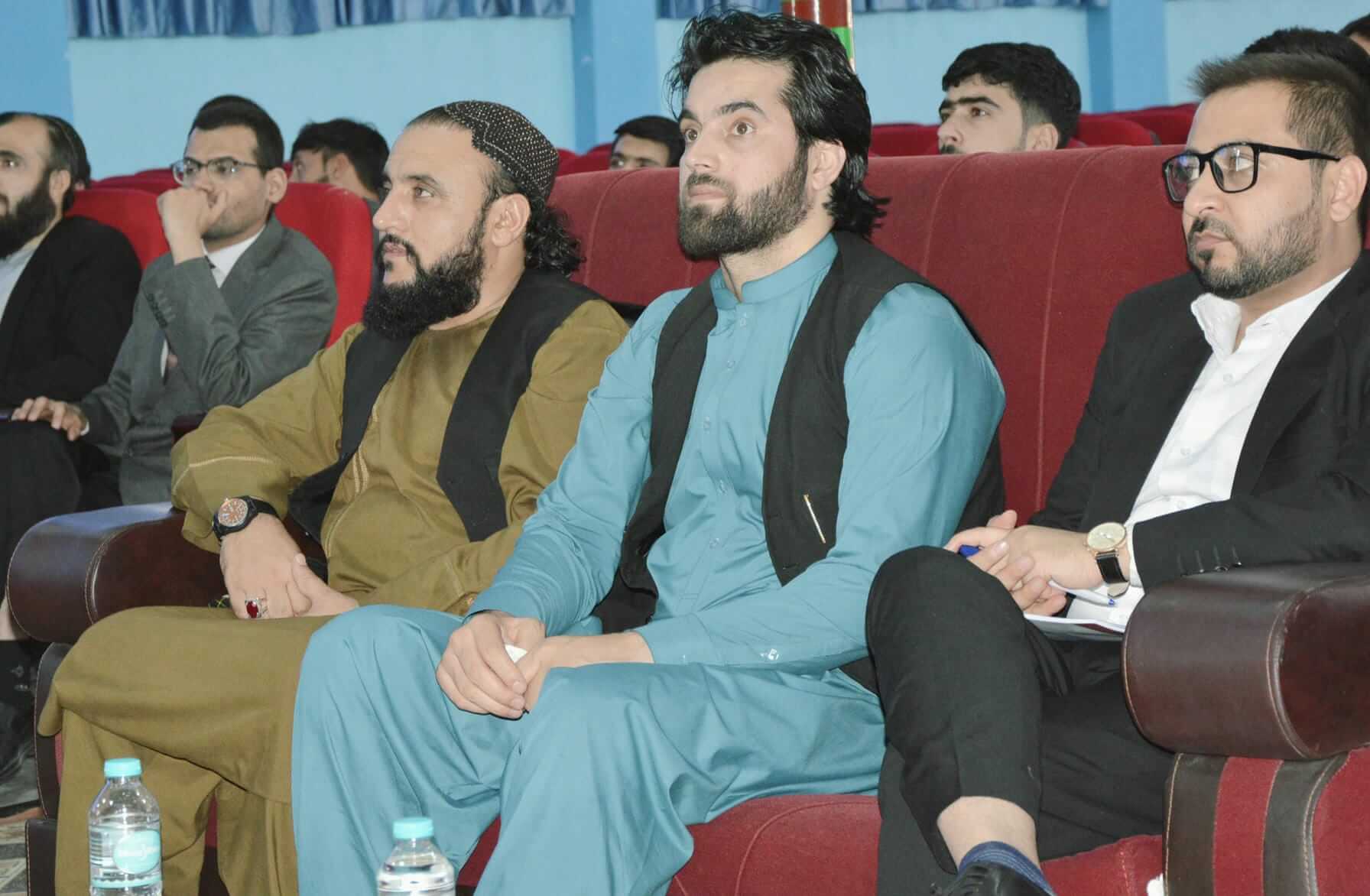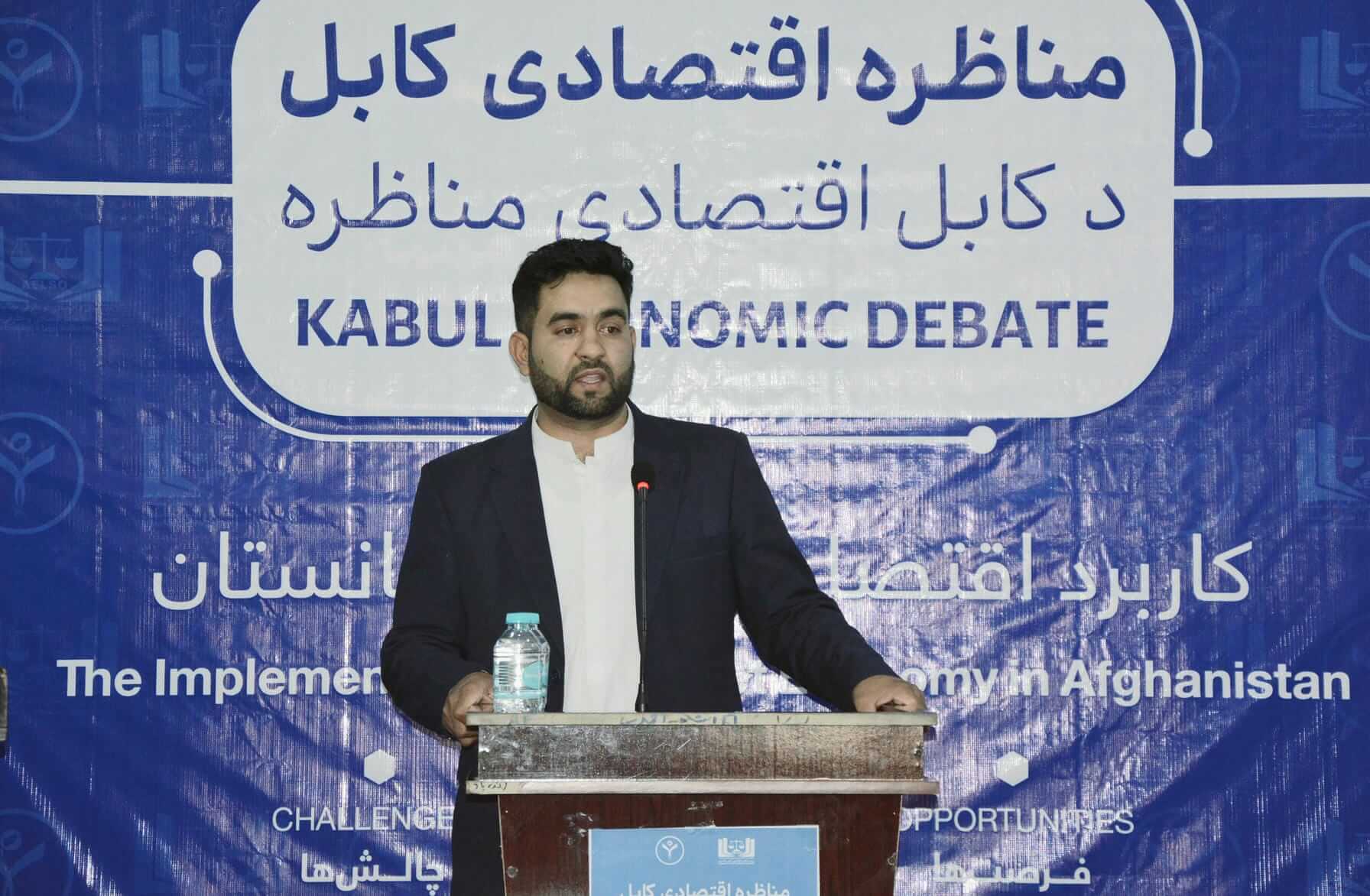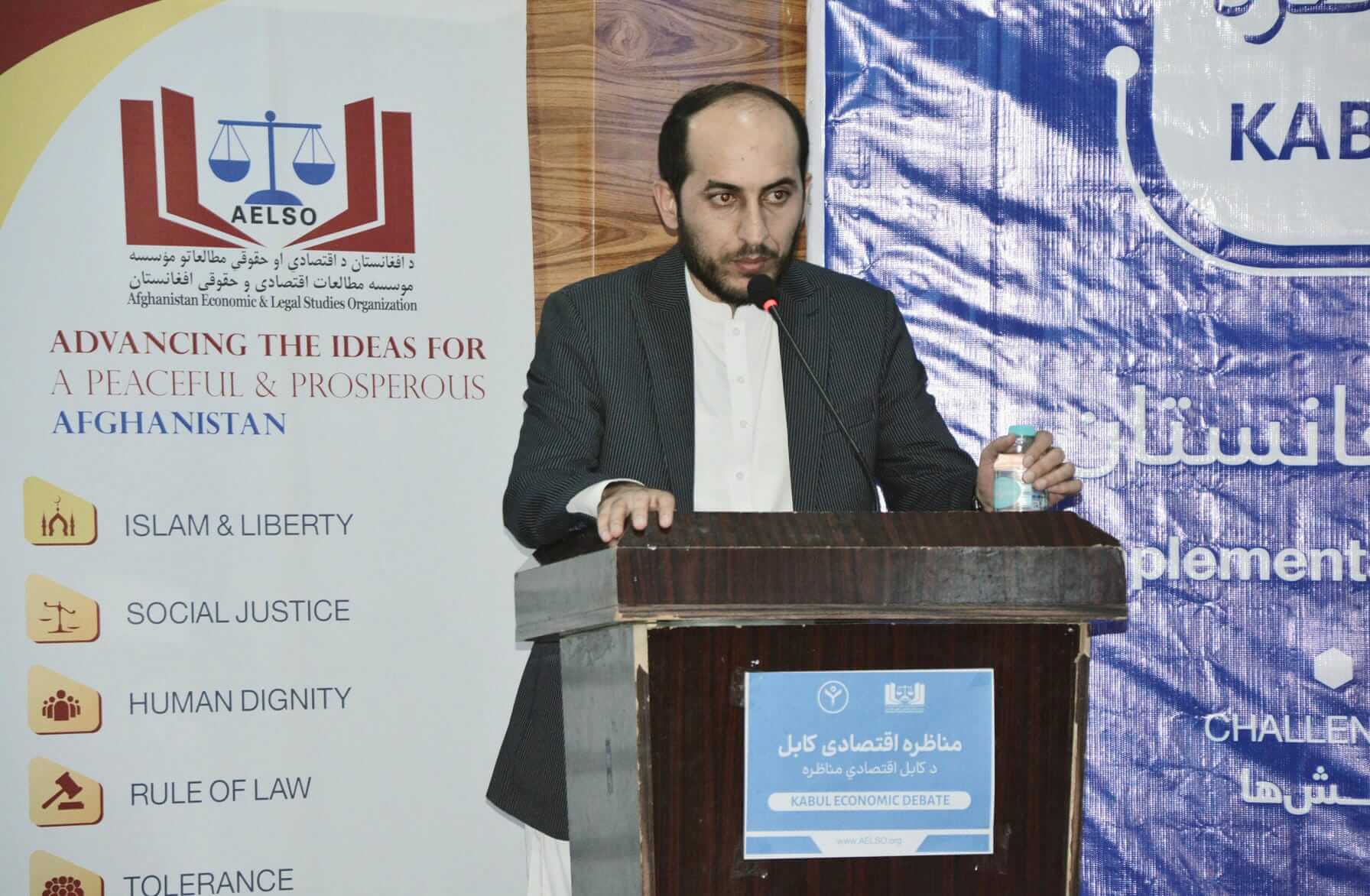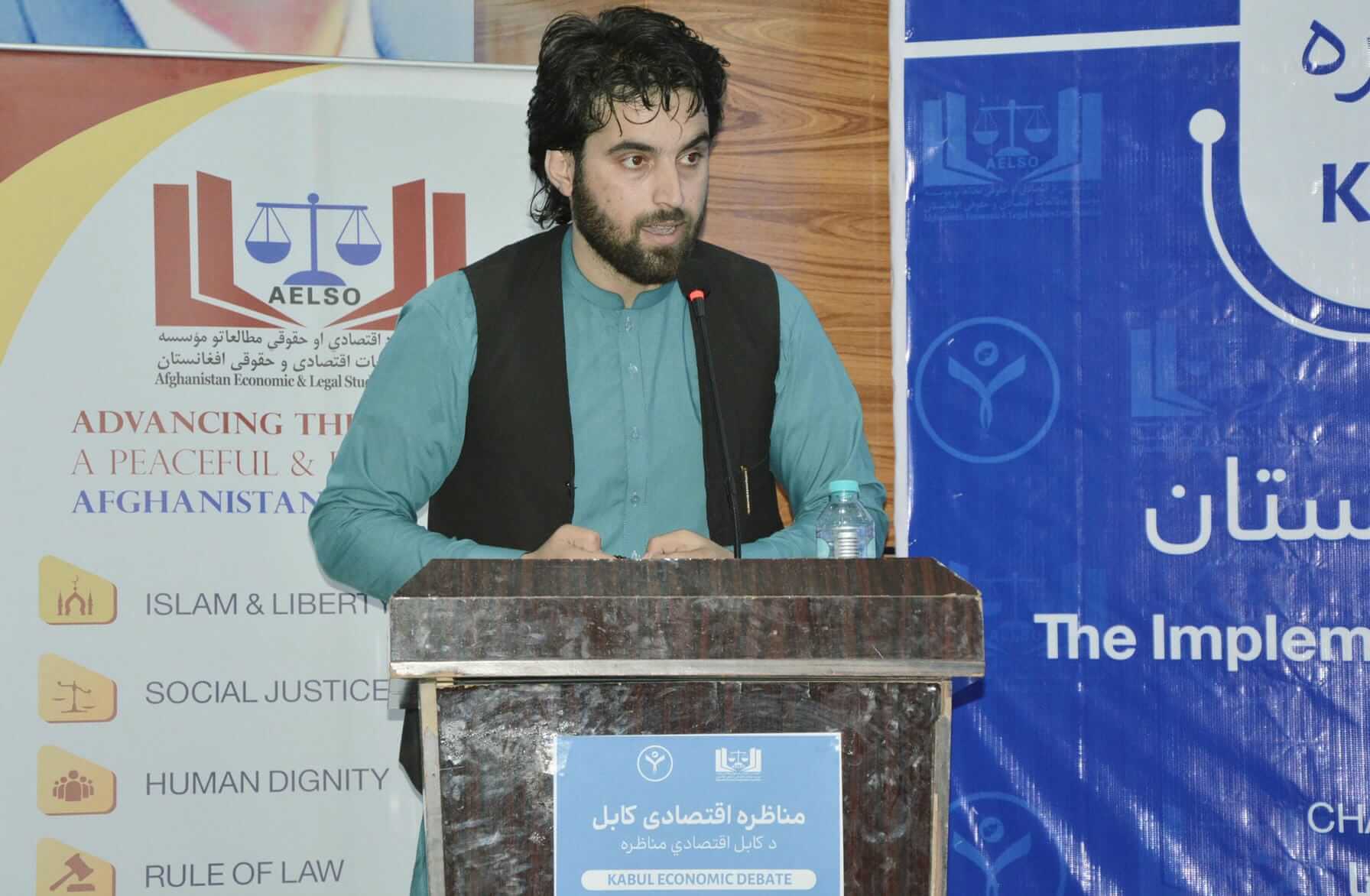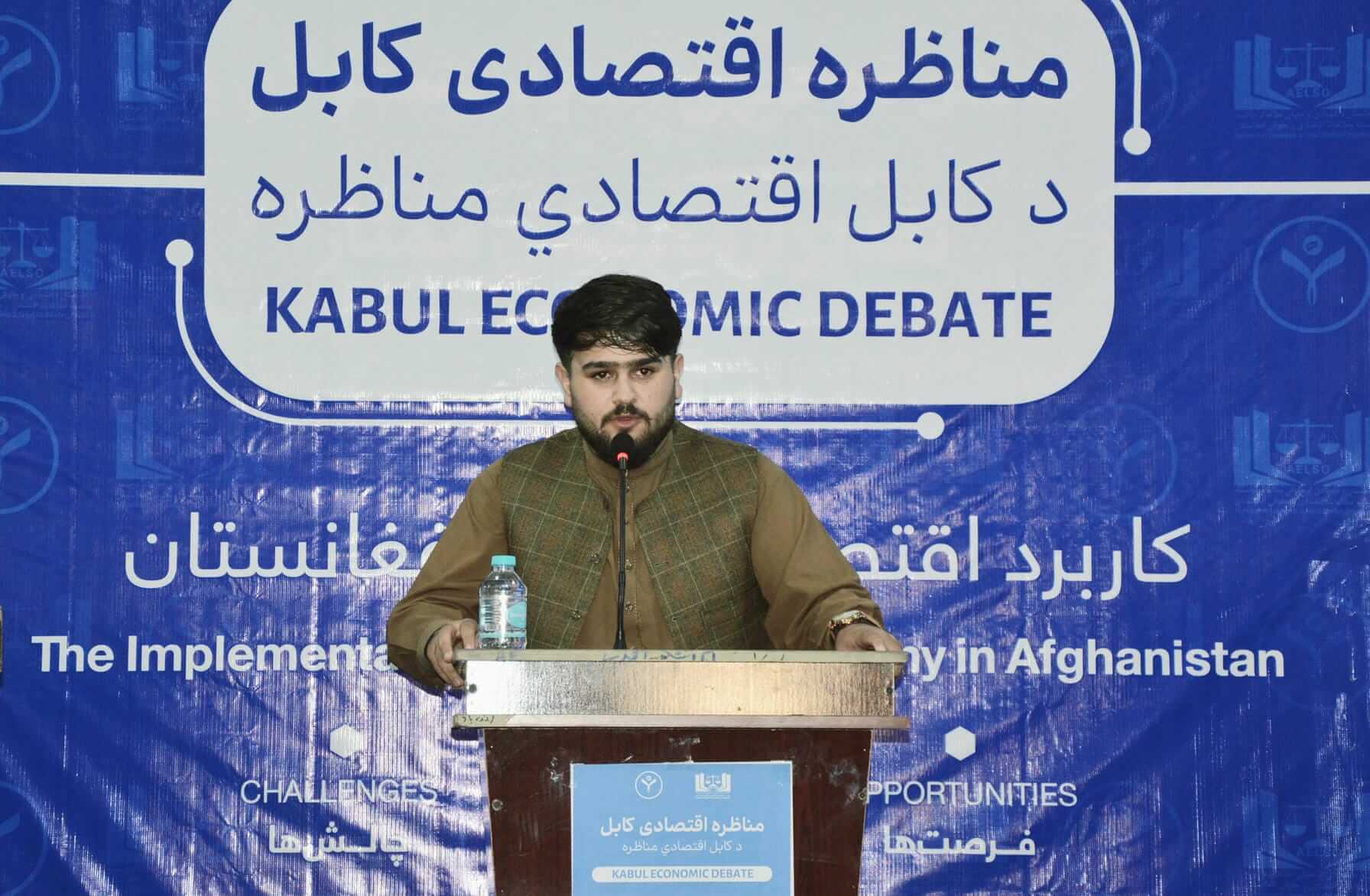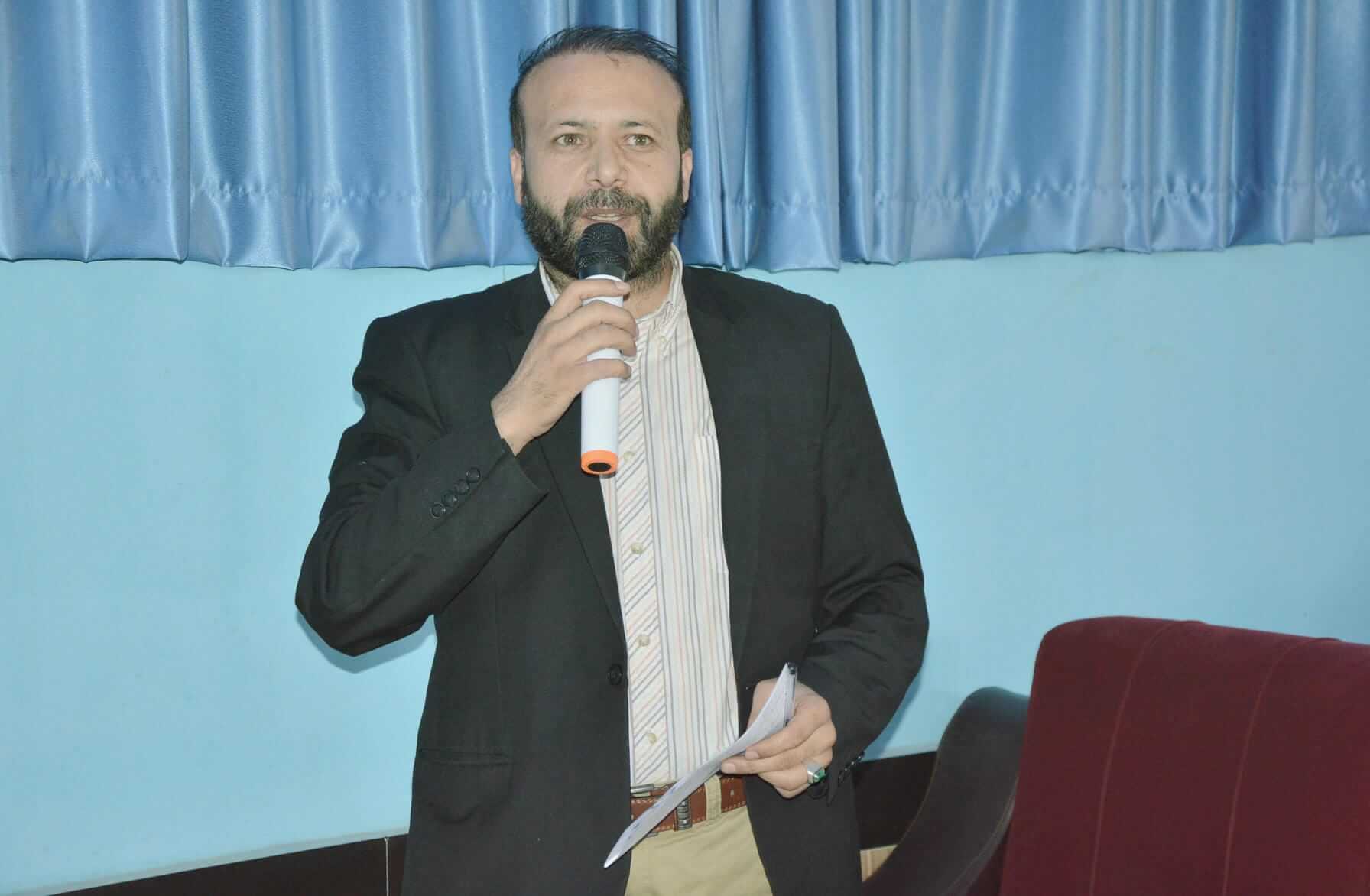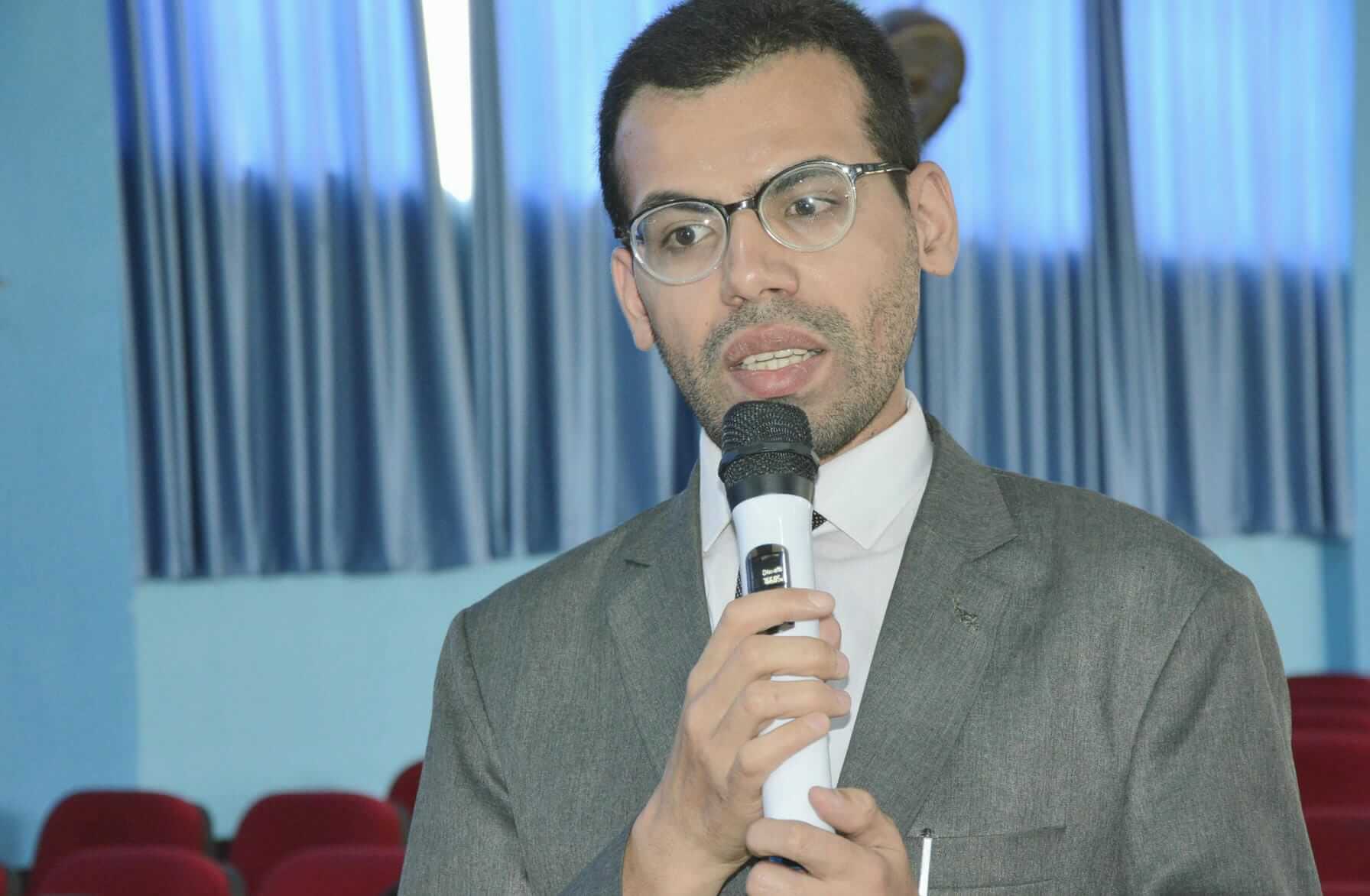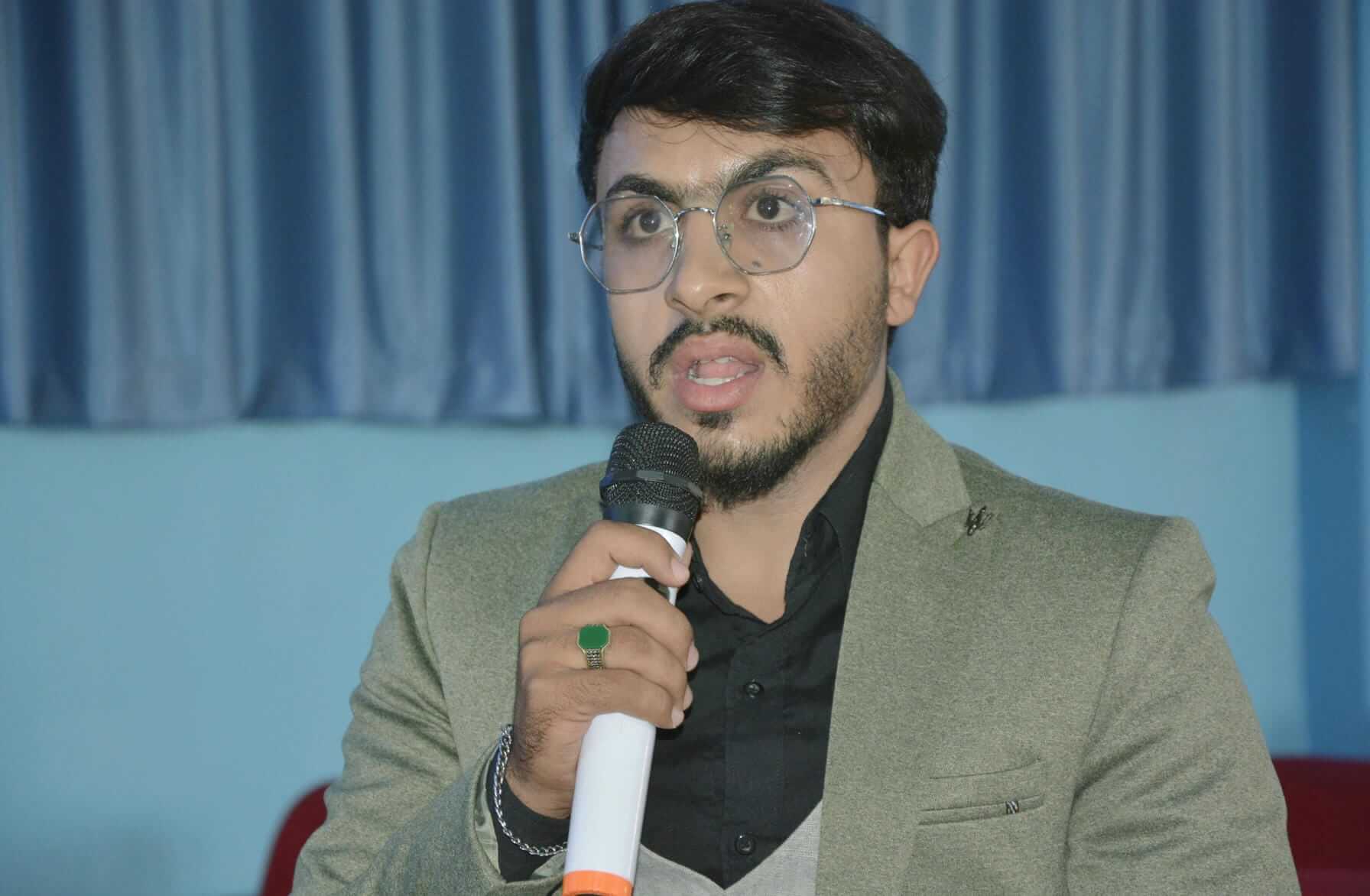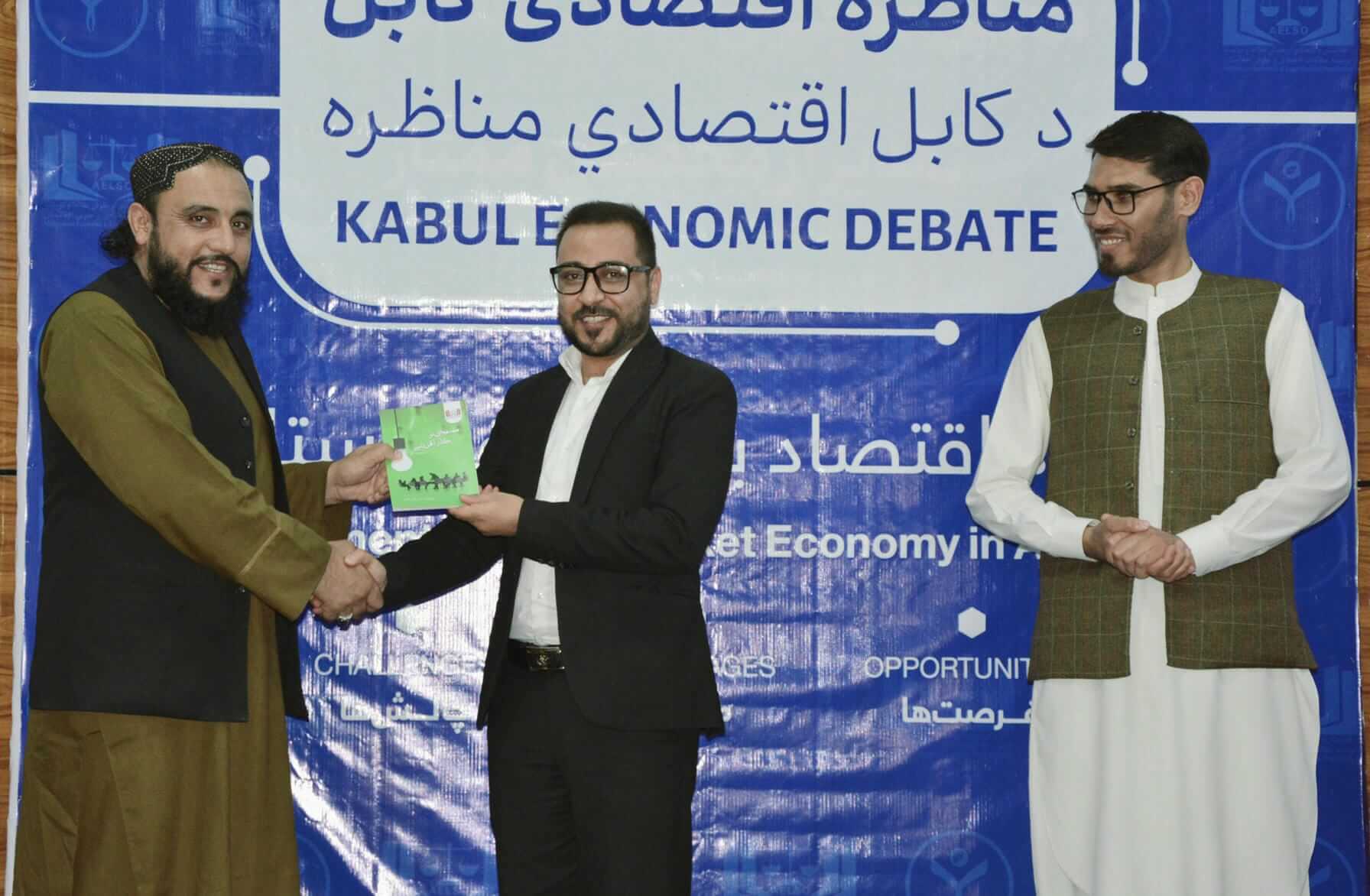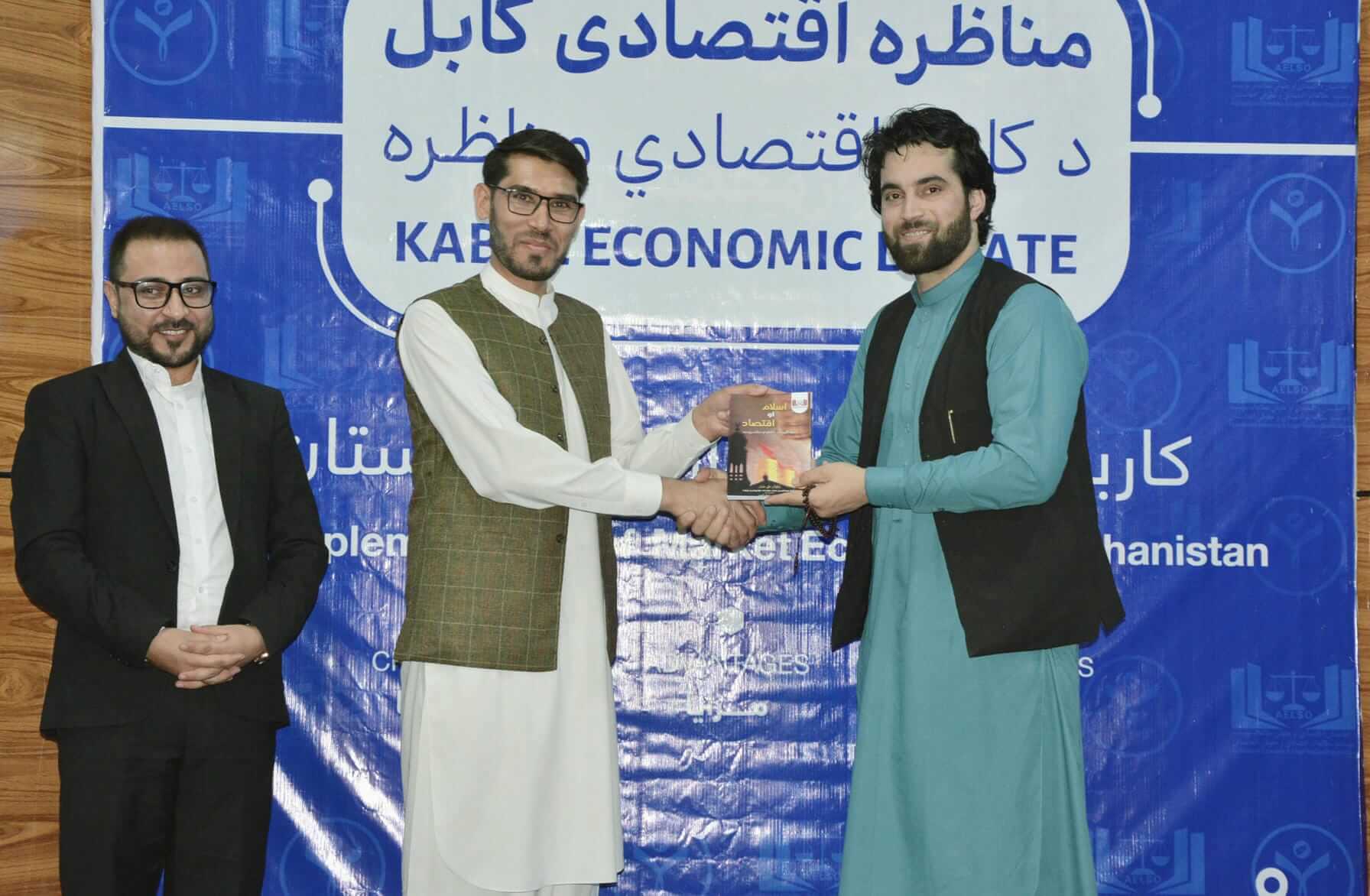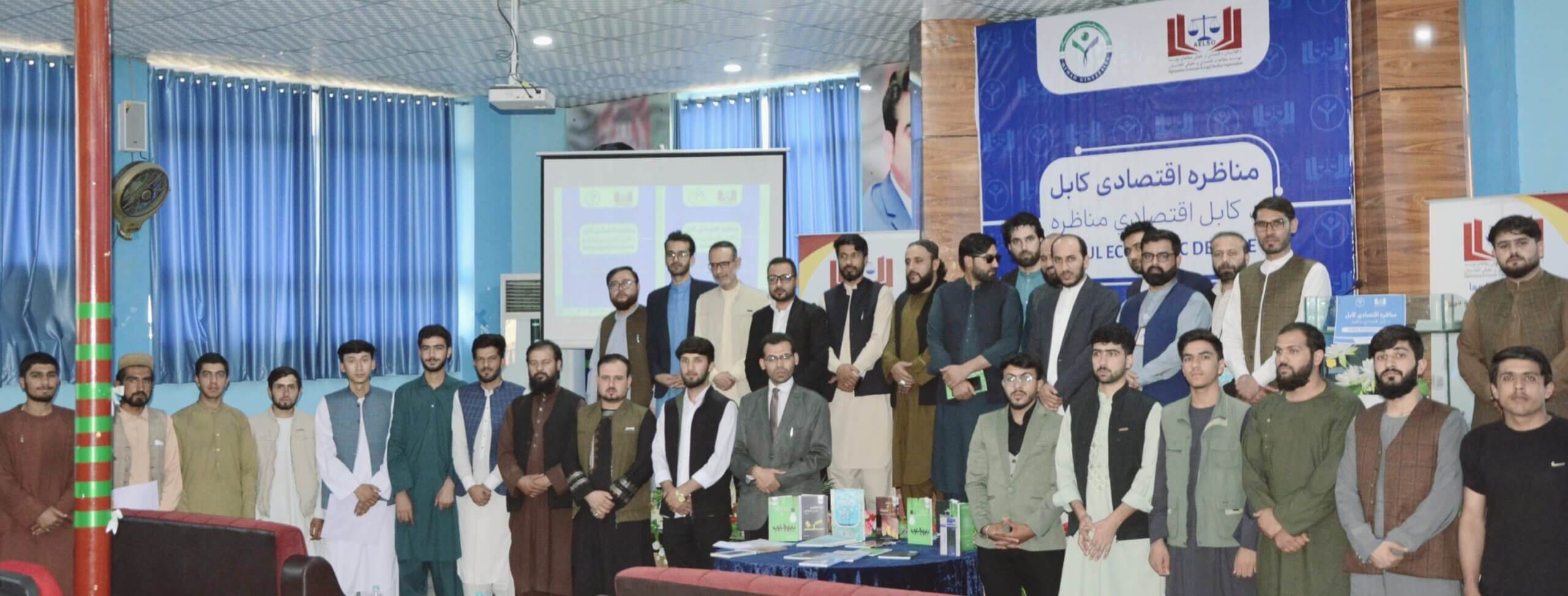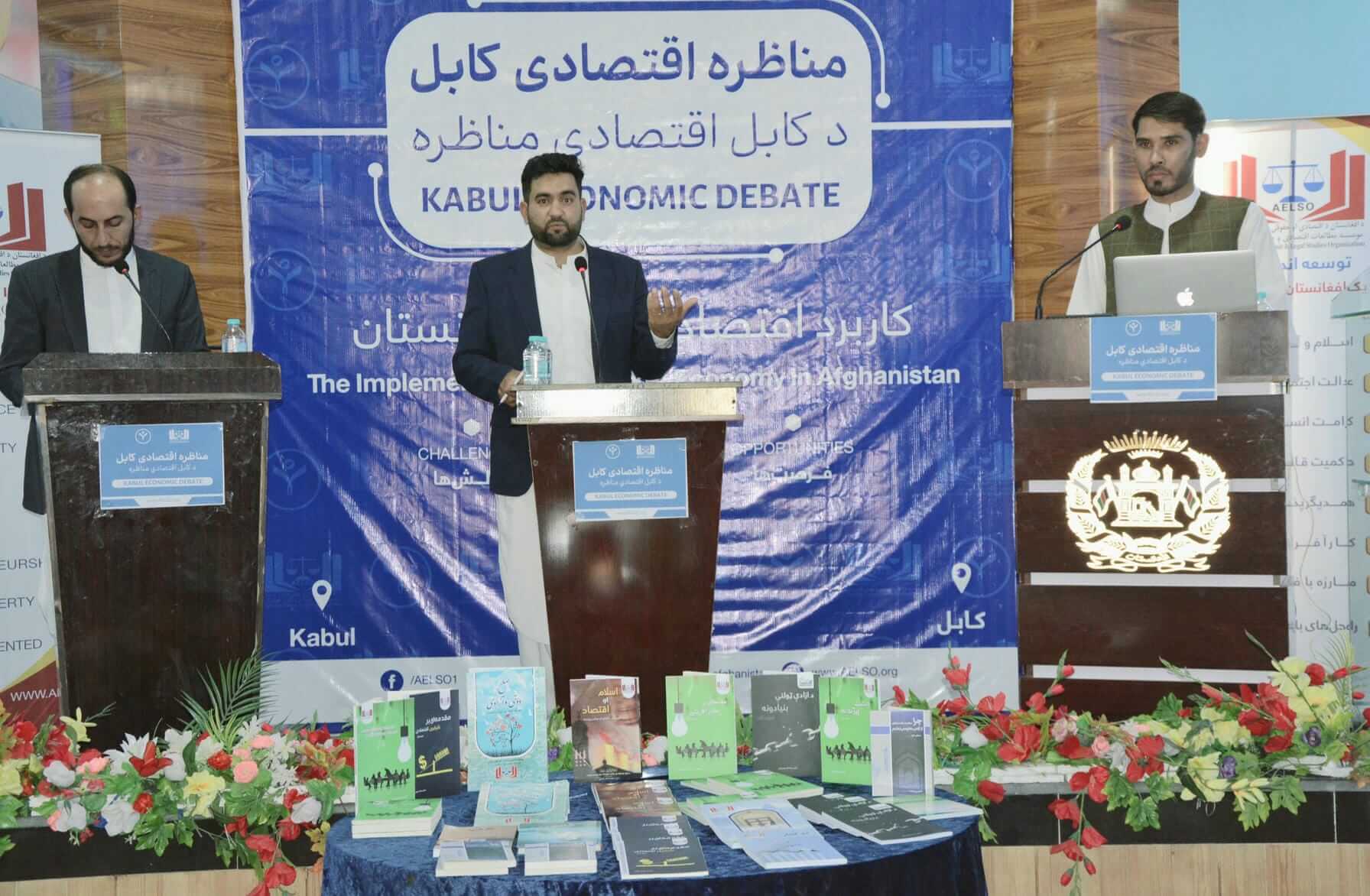
Kabul Economic Debate
In the Kabul Economic Debate, emphasis was placed on a deep understanding of the free market economy.
The Afghanistan Economic and Legal Studies Organization (AELSO), in collaboration with Hewad University, organized the Kabul Economic Debate.
The Kabul Economic Debate was held with the aim of exchanging ideas, fostering critical thinking, promoting a culture of dialogue, expanding scientific methods, and deepening awareness and learning about the application of the free market economy, its advantages, challenges, and opportunities. The event featured experts, university professors, and youth participants.
The Kabul Economic Debate began with opening remarks by Abdul Qaher Beheshti, head of research and programs at AELSO, and the debaters discussed the nature of the market economy.
The experts in this debate highlighted the creation of fair competition, entrepreneurial opportunities, freedom of participation, fostering creativity and innovation, attracting investments, increasing production, and boosting economic activity as the main advantages of a free market.
Shahzada Rahimzoi, a debate expert, believes that entrepreneurship takes shape within the framework of a market economy. This economic system encourages entrepreneurs to develop motivation for business, leading to the formation of various business ideas and creating a favorable environment for innovation and creativity.
In another part of the debate, the experts addressed the challenges of a free market economy, pointing to various factors such as the lack of commitment and expertise, monopolization, unequal distribution of resources, and unfair competition in the market as the most fundamental challenges facing the market economy in Afghanistan.
Abdul Zahoor Modaber, an expert in the debate, considers the implementation of the market economy in Afghanistan to be challenging due to multi-sided monopolies and exploitative motives. He adds that in the past two decades, due to the absence of a comprehensive strategy in this regard, this economic system has not been effective in driving economic growth in Afghanistan.
The debate experts consider the education of the free market concept, provision of necessary foundations, analysis of the positive impacts of the free market in other countries, establishment of a strong government, development of a free market culture, creation of infrastructure, and economic independence as the most important factors for the effectiveness of a market economy in Afghanistan.
At the conclusion of the Kabul Economic Debate, it was emphasized that in countries with economic independence and a good understanding of the free market system, the implementation of this system can lead to encouraging and increasing investments, boosting domestic production, enhancing competition, fostering innovation, raising employment levels, increasing purchasing power, reducing poverty, and achieving a positive trade balance.
The Kabul Economic Debate provided a great opportunity to introduce the concept of the free market, identify its advantages, understand opportunities, and examine challenges. It also offered valuable insights for acquiring practical economic knowledge necessary for success in the field of investment strategies in the market.
AELSO expresses its gratitude for the comprehensive collaboration of the Hewad University, the presence of experts, professors, students, and all participants in the Kabul Economic Debate. It is committed to continuing the series of economic debates to promote academic discourse in the field of economics in Afghanistan.
